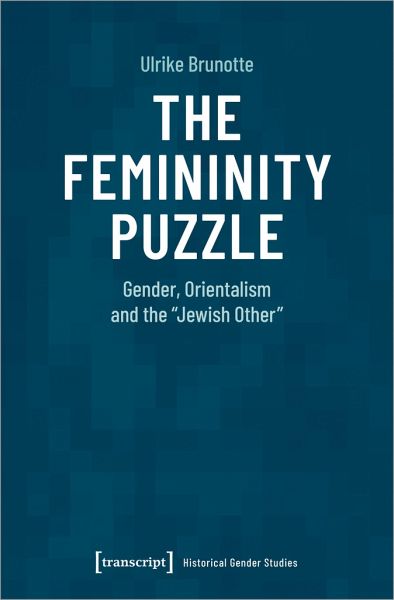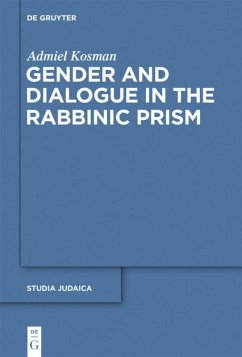
The Femininity Puzzle
Gender, Orientalism and the 'Jewish Other'

PAYBACK Punkte
0 °P sammeln!
In the Hobsbawmian long 19th century, gender and processes of sexualization and feminization have been crucial in the construction of the »Jewish Other«. Ulrike Brunotte explores how these processes came about by addressing imaginative, aesthetic, and epistemological questions. She analyzes how literature, psychoanalysis and the performing arts traverse and react to the ambivalence of racialized stereotypes. The »femininity puzzle« presents itself in two ways: first in the role of effeminization of the male Jew in antisemitic discourse, and then in the transgressive forms of femininity con...
In the Hobsbawmian long 19th century, gender and processes of sexualization and feminization have been crucial in the construction of the »Jewish Other«. Ulrike Brunotte explores how these processes came about by addressing imaginative, aesthetic, and epistemological questions. She analyzes how literature, psychoanalysis and the performing arts traverse and react to the ambivalence of racialized stereotypes. The »femininity puzzle« presents itself in two ways: first in the role of effeminization of the male Jew in antisemitic discourse, and then in the transgressive forms of femininity connected to Jewish women, especially the allosemitic orientalization in the figure of the »Beautiful Jewess«.
Dieser Artikel kann nur an eine deutsche Lieferadresse ausgeliefert werden.













